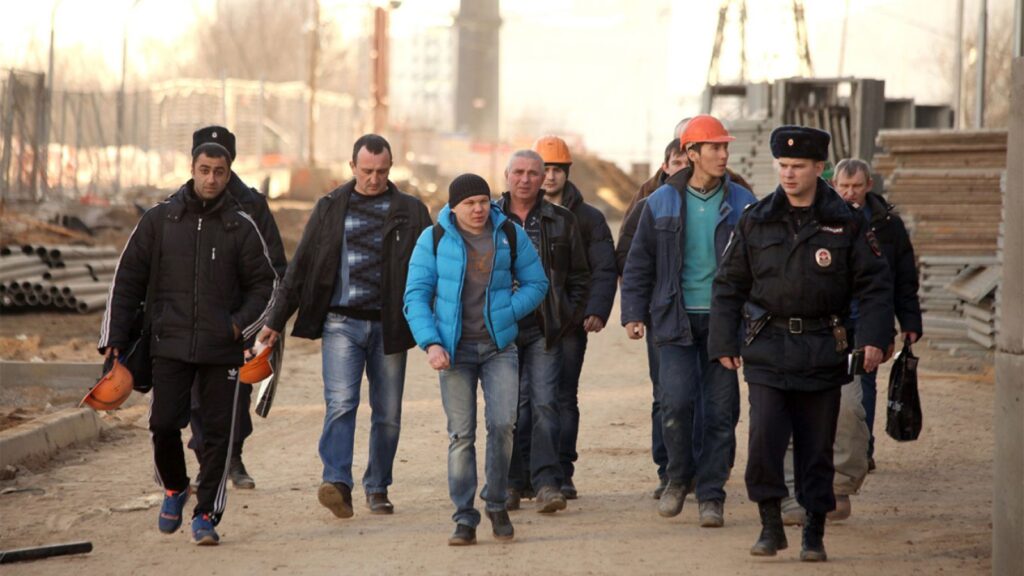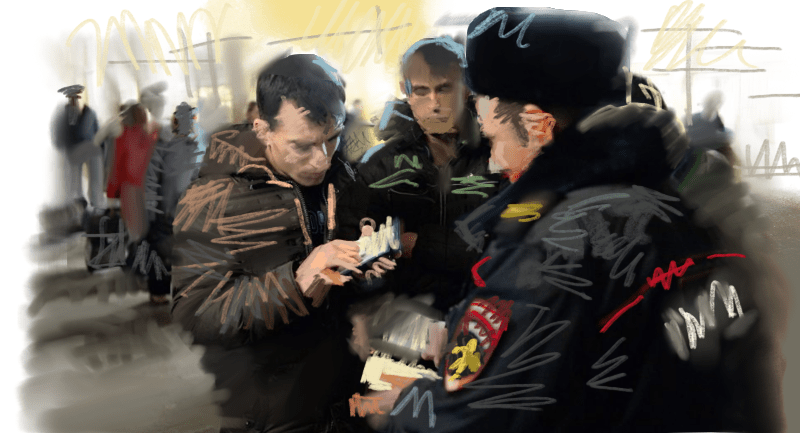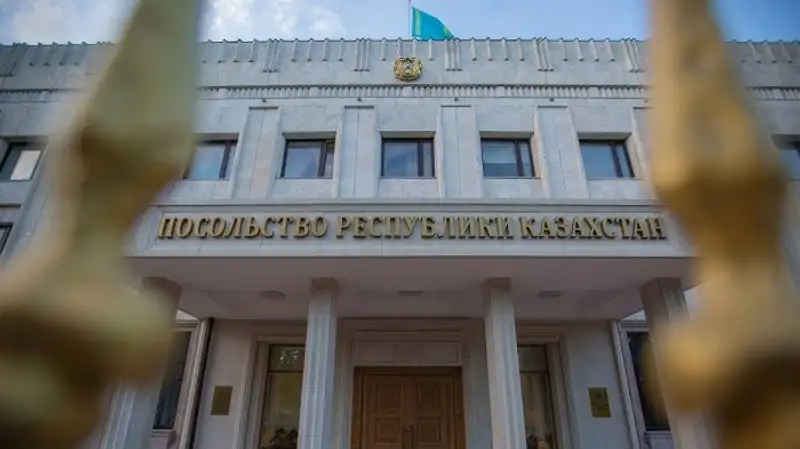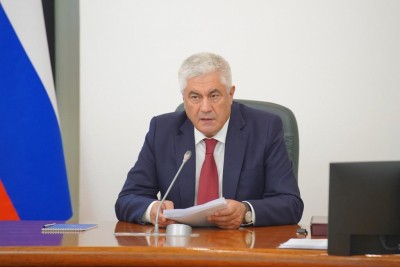Viewing results 1 - 6 of 578
The Ministry of Foreign Affairs of Kyrgyzstan has reported that 71,949 Kyrgyz citizens working in Russia are at risk due to potential violations of Russian migration laws. According to the ministry, the individuals at risk are those for whom the Russian Ministry of Internal Affairs’ database lacks information regarding the conclusion of labor or civil law contracts, fingerprint registration, medical examinations, or migration registration. “For citizens with valid documents confirming legal residence in the Russian Federation, it is necessary to visit the territorial migration departments of the Russian Ministry of Internal Affairs and provide these documents to be included in the database and removed from the risk zone,” the Kyrgyz Foreign Ministry explained. To assist its citizens, the Ministry of Labor, Social Security, and Migration of Kyrgyzstan will soon publish a list of migrants at risk on the portal migrant.kg. Citizens can use this portal to check their status and take steps to resolve any legal issues in advance. From February 5, 2025, a new Russian law, “On the Legal Status of Foreign Citizens in the Russian Federation,” will come into force. Under this law, foreign citizens without legal grounds for staying in Russia will be added to the register of controlled persons and face expulsion. Official data indicates that around 500,000 Kyrgyz migrants currently reside in Russia, though unofficial estimates suggest the figure exceeds one million.
The charges against the four defendants in the Crocus City Hall terrorist attack case have been reclassified, lawyer Alexander Yarin has told Russia's state-owned TASS news agency. “Aminchon and Dilovar Islomov, their father Isroil Islomov, and Alisher Kasimov are now charged under Part 3 of Article 205.1 of the Russian Criminal Code,” Yarin stated. Previously, the defendants were charged under paragraph “b” of Part 3 of Article 205 of the Criminal Code, which pertains to a terrorist act resulting in a fatality. The updated charges now reflect involvement in actions that facilitated the commission of a terrorist act. As previously reported by TCA, the terrorist attack at Crocus City Hall, located on the outskirts of Moscow, resulted in 144 fatalities and 551 injuries. The incident has created a climate of fear among Central Asian migrants living in Russia. In the aftermath of the attack, Tajik migrants have faced a surge of hostility and aggression, further exacerbating tensions within the migrant community.
Kazakh companies seek to avoid secondary sanctions, but the country will continue to cooperate closely with Russia. This was stated by Kazakhstan's Ambassador to Russia, Dauren Abayev, at a press conference in TASS news agency. According to him, about ten companies in the country have fallen under such sanctions, but these are isolated cases. “Kazakh companies, naturally, do not want to be under sanctions, as any restrictions have a negative impact on their activities,” Abayev emphasized. Nevertheless, he noted that strategic partnership and allied relations remain between Kazakhstan and Russia, and the growth of trade turnover confirms the continuation of cooperation. Earlier in August, Kazakhstan's Deputy Prime Minister Serik Zhumangarin said in an interview with Bloomberg that the republic would not blindly follow sanctions against Russia but would take into account international restrictions. He emphasized that Kazakhstan will not allow a ban on trade for its companies, but the country cannot completely ignore the sanctions because of the risk of economic isolation. Kazakhstan's Minister of National Economy Nurlan Baibazarov commented in early November on Kazakhstan companies being placed on the UK sanctions lists, saying that these violations are not systemic. He said the sanctions were mainly one-day firms, and the republic continues to comply with international restrictions.
Russian Interior Minister Vladimir Kolokoltsev announced a decline in crimes involving Tajik citizens in the Russian Federation during a joint meeting of the Russian and Tajik Interior Ministries in Moscow. This reduction includes both offenses committed by and against Tajik nationals, a trend Kolokoltsev emphasized should continue. One notable achievement highlighted was the resolution of a 30-year-old murder case in Sughd, which was solved through coordinated information-sharing between Russian and Tajik law enforcement agencies. Strengthening Bilateral Cooperation During the meeting, Kolokoltsev and Tajik Interior Minister Rahimzoda Ramazon Hamro approved a 2025 cooperation plan. The agreement includes measures to combat transnational crime, enhance collaboration between investigative units, share intelligence, and address drug trafficking. Rahimzoda stressed that ongoing cooperation strengthens security and improves the performance of law enforcement agencies in both countries. Tajik officials highlighted that joint events and initiatives have been held annually since the partnership began. Addressing Migration and Citizens’ Rights Kolokoltsev also referred to his May 2024 visit to Dushanbe, where discussions revolved around migration issues and the establishment of the Russian Interior Ministry’s passport and visa service. These efforts aim to enhance conditions for Tajik citizens living in Russia while safeguarding their rights and interests.
Russia continues to try to reorient its natural gas exports from Europe to Asia and is planning a new pipeline route to China that would pass through Kazakhstan. Kazakhstan stands to benefit not only from transit fees, but could also import some Russia gas for regions in northeastern Kazakhstan that are desperately in need of more energy sources. The Russian plans are bad news for Turkmenistan as China is Turkmenistan’s main gas customer and Turkmen authorities were hoping to sell China even more gas. On November 15, Russian Deputy Prime Minister Aleksandr Novak mentioned the pipeline plan on the sidelines of a Chinese-Russian forum in Kazan, Russia. Novak said such a project is still only being discussed, but Russian media outlet Kommersant wrote on November 18 that there are already three options for the pipeline. All three possibilities pass though northeastern Kazakhstan, but Kazakhstan’s level of participation in the pipeline is different in each variation. One of the projects would require Kazakhstan to build a pipeline for gasification of the northeastern Pavlodar, Abai, and Karaganda provinces. A second proposal would include only the Abai and Zhetysu provinces. Russian gas giant Gazprom’s financial obligation also changes depending on the pipeline project selected. The most expensive option for Gazprom would cost more than $10 billion to construct and would not operate at full capacity until 2034. All versions foresee at least 35 billion cubic meters of Russian gas (bcm) shipped via the pipeline with Kazakhstan receiving some 10 bcm, which would greatly alleviate recent power shortages in northeastern Kazakhstan. Despite Novak saying the pipeline project was only being discussed, Kazakhstan and Russia appear well along in their planning. In early May, Kazakh Ambassador to Russia Duaren Abayev gave an interview to Russia’s TASS news agency and mentioned there was a “roadmap” for supplying 35 bcm of gas to China via Kazakhstan. Russia already exports gas to China via the “Sila Sibiri” (Power of Siberia) pipeline and expects that in 2024 the pipeline will for the first time reach its full capacity of 38 bcm. Construction of Sila Sibiri-2 with a planned capacity of some 50 bcm has been delayed due to China’s reluctance to loan Russia money for construction, differences over price, and China’s increasing purchases of liquefied natural gas (LNG). Novak commented on Sila Sibiri-2, saying the pipeline project involving Kazakhstan was separate and the Russian government will continue to negotiate with China about construction of Sila Sibiri-2. Russia is seeking to replace its former main customer, the European Union. Prior to the Kremlin launching its full-scale war on Ukraine in February 2022, the EU was buying between 150-160 bcm of Russian gas annually. The EU sharply cut back on Russian gas imports in response to the invasion of Ukraine and in 2023 imported less than 43 bcm. Russia’s pivot to Asia for gas exports targets the Chinese market, but Gazprom is looking to take any possible Asian customers and has found some in Central Asia. Russia’s surge into the Asian...
An Uzbek citizen has been detained in Italy on charges of orchestrating the kidnapping of Italian businessman Stefano Guidotti in Moscow. In June this year Guidotti was abducted and held hostage. According to Italian investigators, the alleged mastermind is a 44-year-old Uzbek national living near Ravenna, who holds a Russian passport. The suspect had previously worked for Guidotti’s business. The Bologna prosecutor’s office identified the Uzbek citizen as the primary organizer of the crime. Reports indicate he also personally initiated negotiations to establish a ransom for the release of Guidotti, who serves as the general director of the Russian office of SIAD Group. SIAD is one of Europe’s largest manufacturers of industrial gases. The kidnapping took place on the morning of June 28, when three men seized Guidotti in the courtyard of a residence in central Moscow. He was handcuffed, a bag was placed over his head, and he was forced into a car. Russian police rescued him the following day in the country's Bryansk region. The abductors reportedly included three Russian nationals and one foreigner.






